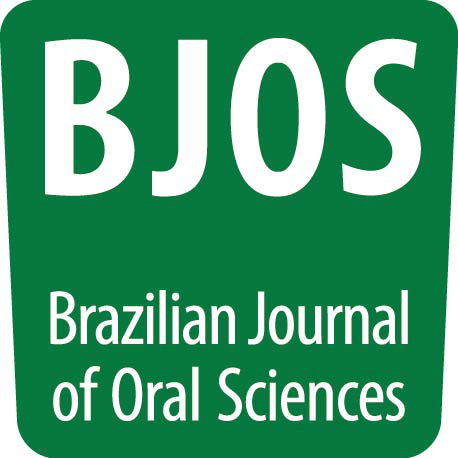Abstract
Aim:
To evaluate, in vitro, the effect of brushing with a Ricinus communis-based experimental toothpaste on color stability and surface roughness of artificial teeth.
Methods:
Ninety artificial teeth (maxillary central incisors) in different shades, light and dark (NatusDent Triple Pressing, Dentbras) were used. Initial color (Spectrophotometer Easyshade, VITA) and surface roughness (Rugosimeter Surfcorder SE 1700, Kosakalab) readouts were performed. After baseline measurements, samples were assigned to 10 groups (n=9) according to the artificial tooth shade and type of toothpaste used during the mechanical brushing test (Pepsodent, MAVTEC): Sorriso Dentes Brancos - SDB, Colgate Luminous White - CLW (Colgate-Palmolive), Close up White Now - CWN (Unilever), Trihydral - THL (Perland Pharmacos) and Ricinus communis - RCE (Experimental). After 29,200 cycles of brushing, corresponding to 2 years of brushing by a healthy individual, new color and roughness readouts of the specimens were performed. Data (before and after the tests) were statistically analyzed (2-way repeated measures ANOVA, Tukey, p<0.05).
Results:
RCE toothpaste produced the greatest color stability for dark tooth shade and the second best color stability for light tooth shade. For surface roughness alteration, there was no difference (p>0.05) for any tested toothpaste regardless of tooth shade.
Conclusions:
The experimental Ricinus communis toothpaste did not cause color and surface roughness alteration in the artificial teeth, and it may be considered a suitable option for denture cleaning.
Keywords:
oral hygiene; toothpastes; castor oil; color



